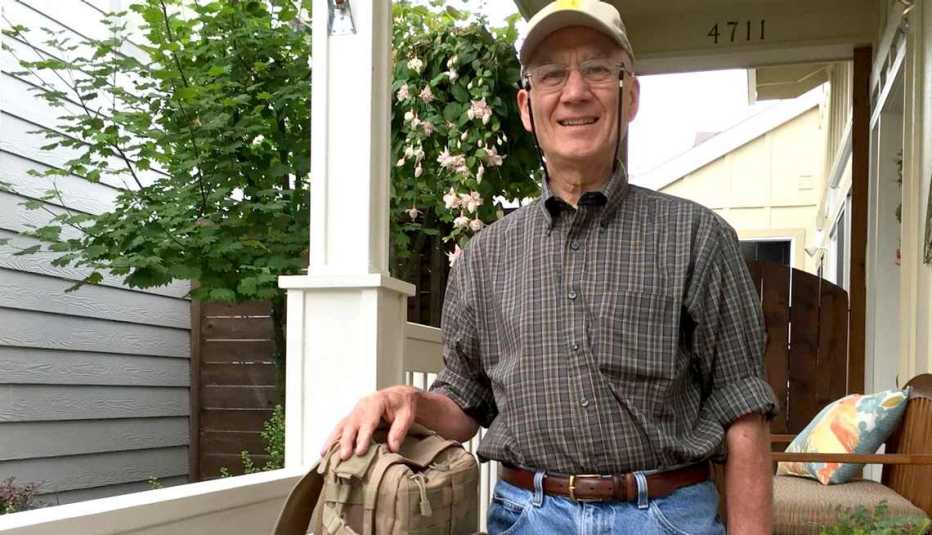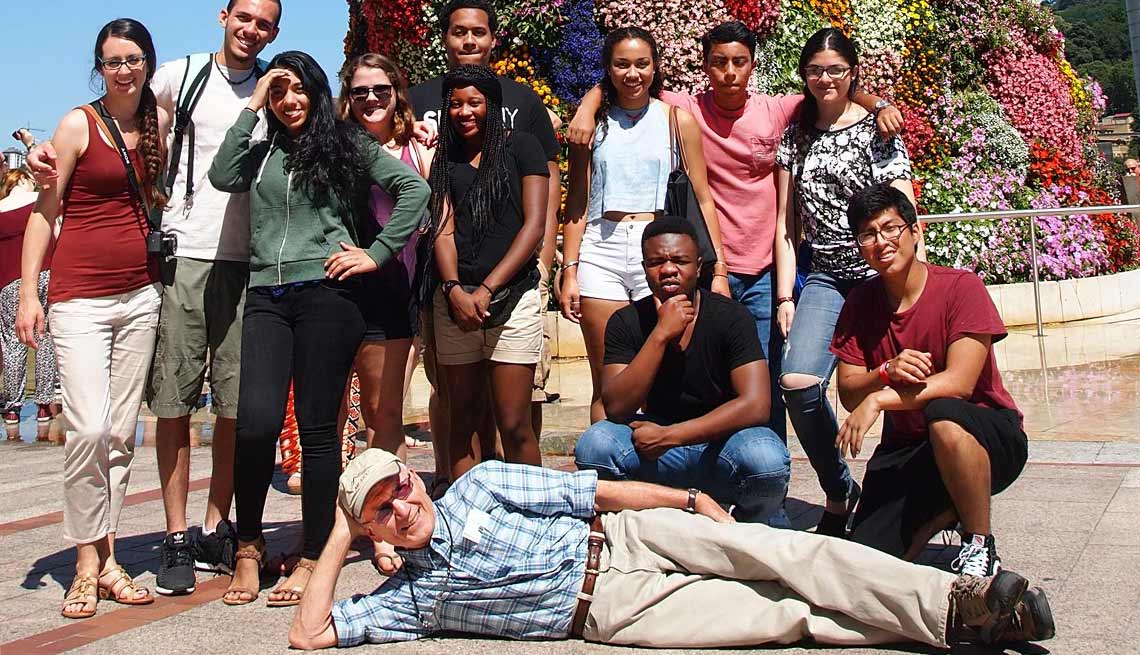AARP Hearing Center
Gone are the days when retirement meant only one thing: no more work. Today's retirees are finding new ways to stay engaged and get compensated for doing what they love.
Whether you're in your 60s, 70s or 80s, you, too, can find a side gig or personal pursuit out there with your name on it.
The amount of time you spend working — or even volunteering — might be concentrated into one season, like summer. Or it could be ongoing, but scaled back to once a week. You can even choose how much or how little you want to work or engage in what interests you.
The following three retirees will show you how they stay active and creative, while also gaining financially.
Get Paid to See the World
Sounds too good to be true?
Meet Gary Nees from Portland, Ore. This 70-year-old former Chief Financial Officer has spent the last two summers in Mexico and Spain as a youth leader for the Experiment in International Living. The 84-year-old program, which is part of the World Learning nonprofit in Washington, D.C., runs three-, four- and five-week summer programs for high school students in more than 20 countries.
"About four years ago, when I was planning my retirement, I contacted the Experiment and asked, 'Hey, do you hire old people?' " says Nees, who was a group leader for the program in Mexico 46 years earlierd.
After semi-retiring three years ago, he led another Experiment group of 12 high school students on a month-long cultural immersion program to Mexico, similar to the one he did in 1968. The all-expense-paid trip included a $900 stipend.
As the date got closer, Nees had some concerns. "Am I going to be accepted? Will I be able to relate?" he recalls. But it worked out great. "I felt so accepted. I didn't know what they were talking about half the time, but it didn't matter," says Nees with a chuckle, adding, "I was Grandpa."
The experience was so good, he led another Experiment program the next year.
Most people would not consider being a youth leader as a way to get rich. Nees, though, strongly disagrees.
"It was for me," he says. "Just a different kind of rich."


Get Paid to Teach
Barbara Parker, 82, is an adjunct instructor at the NYU School of Professional Studies non-degree program. She teaches two or three plays of William Shakespeare during a class that meets for two hours each week over two or so months in midtown Manhattan. Her students: other retirees.





























































